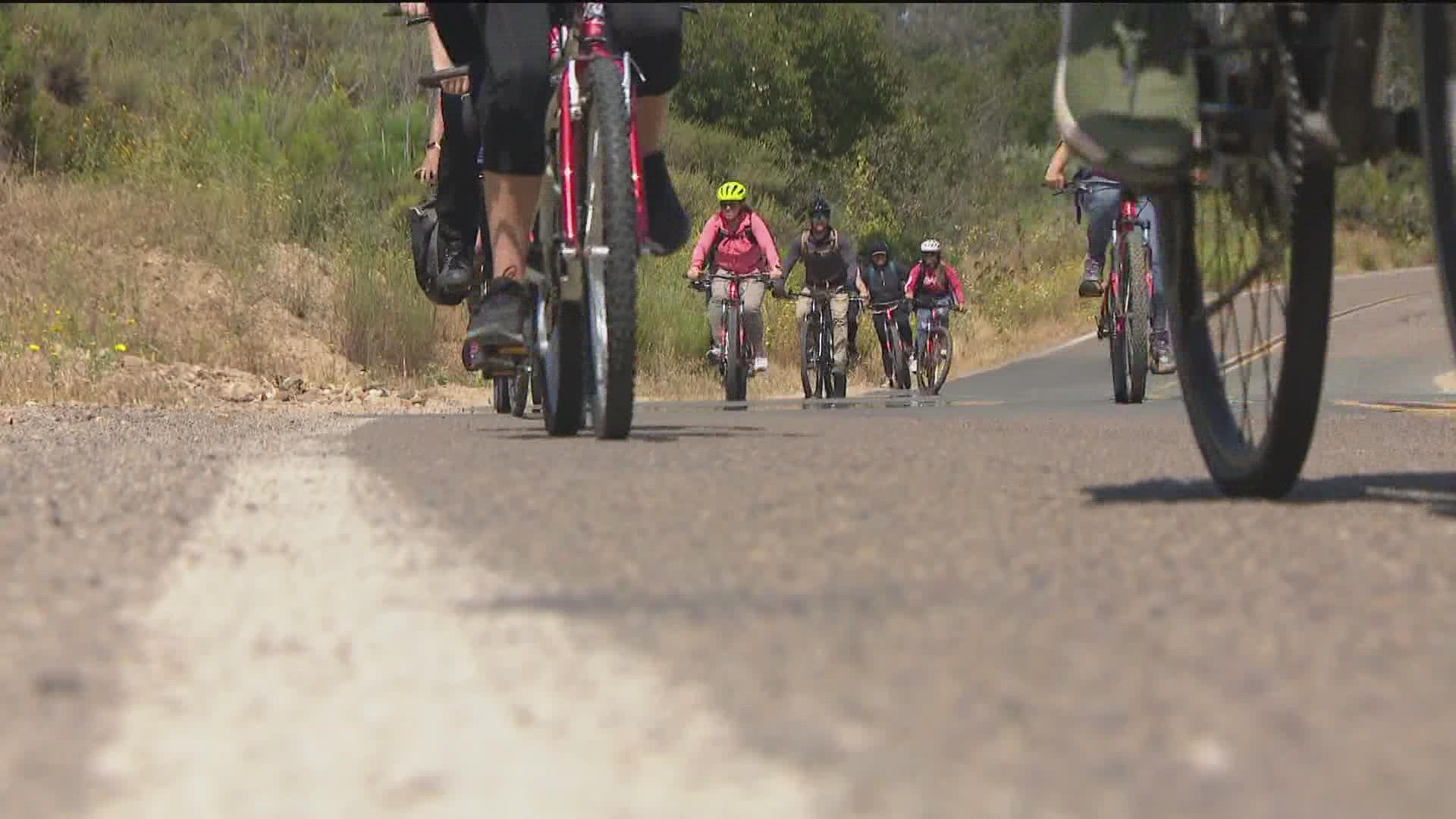SAN DIEGO — For riders like Ben McCue, San Diego’s most southern corner is a paradise for outdoor recreation.
"What I love about the Tijuana River Valley is it's really one of kind of the hidden gems of San Diego County in terms of it has miles and miles of multi-use trails. You can mountain bike. You can ride horses," McCue said.
From the dry gravel roads and dirt paths in Border Field State Park to the swampy Tijuana Estuary, the parklands just north of the border are critically important for the health of our environment and the people of San Diego.
The Tijuana River flows from Mexico into the valley below. Heavily polluted streams of chemical waste, raw sewage and garbage have been finding their way into the park for decades. An issue that affects both sides of the border.
"98% of the population in that watershed is in Mexico. Just looking at the inequities across the border, the lack of sewage treatment, the lack of trash collection," says McCue, the Executive Director of Outdoor Outreach.
"Yesterday in Imperial Beach, we had a SURF program scheduled for kids from Chula Vista High School. And right when they showed up, the lifeguards were putting in the beach closure signs," said McCue.
But to learn more about the environmental difficulties facing the border region, around two dozen riders geared up and headed to Border Field State Park on Saturday.
Wheels on the Watershed, a bike tour organized by environmental groups and led by McCue and Manuel Belmonte give riders a first hand look at what is happening at the border.
"We're here to talk about various types of environmental and justice that impact this region and the environmental impacts at the border," said Belmonte.
The roughly ten-mile ride gave an eye-opening look to riders. The first stop was a massive pile of rubber tires.
"Once they’re here in California, they’re classified as hazardous waste," said McCue gesturing to the pile of tires. "It costs the state or whoever is removing, between $4 to $20 per tire."
Then to the South Bay Wastewater Treatment Plant.
"It treats sewage originates in Tijuana, but to US standards," said McCue. "Honestly, we need a lot more of that we need a lot more people to care about this region."
The EPA has announced plans for a $300 million investment to reduce the flow of sewage and pollution flowing into the country. Helping Mexico clean wastewater, while reducing the flow of sewage into the United States.
But it’s tours like these that give a glimpse into the environmental problems at the border. Hoping to inspire the next environmentalist to protect this delicate ecosystem.
WATCH RELATED: 'You don't want to be here when it starts to rain' | Tijuana River Valley prone to flooding.

